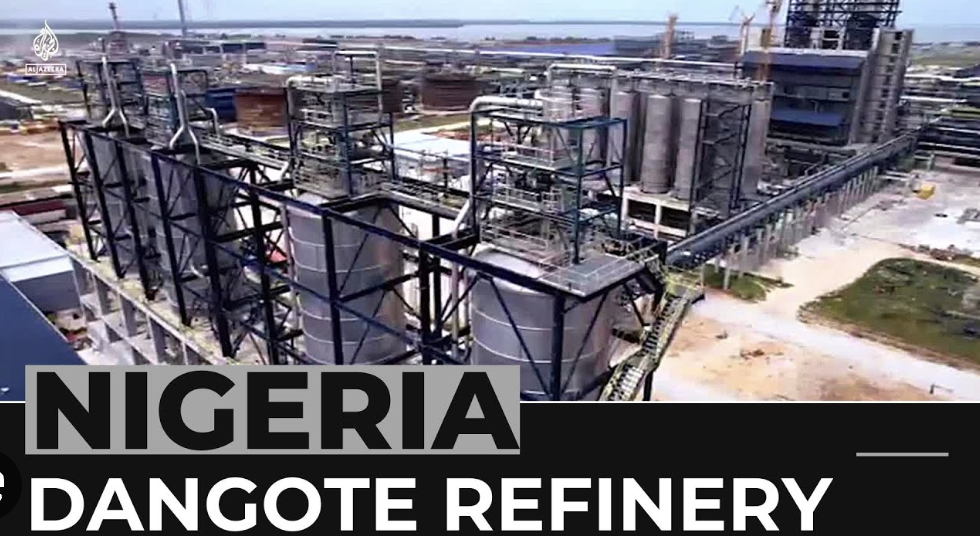In an unprecedented move that has left the global oil industry both impressed and intrigued, Africa’s business magnate Aliko Dangote has officially entered the oil sector. This bold initiative underscores his visionary approach and could reshape the contours of Nigeria’s energy market for decades to come.

An Ambitious Vision Realized
Dangote’s journey into the world of oil began over a decade ago when his keen eye spotted ripe opportunities lying unexplored within Nigeria’s energy sector. Historically known for his success in cement manufacturing and commodities, it was expected that Dangote’s new venture would follow suit in terms of ambition and scale. This foresight culminated in the establishment of the Dangote Refinery, now touted as Africa’s largest oil refinery and the world’s largest single-train facility.
Transformational Impact on Nigeria’s Economy
The timing and implications of Dangote’s oil industry venture cannot be overstated. For a nation that has long relied on the importation of refined petroleum products, this development will prove transformative. The refinery’s capacity to process 650,000 barrels of crude oil per day is poised to drastically reduce fuel imports, saving Nigeria an estimated $10 billion annually.
Key Benefits:
- Significant reduction of fuel importation
- Potential to stabilize domestic fuel prices
- Job creation for thousands of Nigerians
- Promotion of local content and skill development
Revolutionizing Domestic Fuel Supply
For years, Nigeria has paradoxically been an oil-rich nation beleaguered by severe fuel deficits due to limited refining capacities. The advent of the Dangote Refinery marks the dawn of a new era, where the country can potentially achieve self-sufficiency in refined petroleum products. This strategic development is also expected to benefit other African countries by providing them with an alternative to importing refined fuel from outside the continent.
Environmental Considerations and Sustainability
While the primary focus has been on how this project influences Nigeria’s economic landscape, it’s essential to highlight Aliko Dangote’s commitment to environmentally sustainable practices. The refinery is equipped with state-of-the-art technology that minimizes emissions and maximizes efficiency. This emphasis on sustainability aligns with global trends towards more eco-friendly industrial operations, setting a benchmark for other refineries within and beyond the African continent.

Tackling Unemployment
Furthermore, this project will contribute to alleviating Nigeria’s unemployment crisis. It is estimated that the Dangote Refinery and its ancillary projects, including a fertilizer plant and petrochemical facility, will create upwards of 70,000 jobs directly and indirectly. This influx of job opportunities plays a crucial role in uplifting local communities and providing much-needed financial stability for countless Nigerian families.
Potential Challenges and Mitigation Tactics
Despite the overwhelmingly positive reception, the project is not without its challenges. For one, the fluctuation in global oil prices remains a pertinent concern. However, Dangote’s proactive approach, which includes forging strategic partnerships and diversifying revenue streams through petrochemicals and fertilizers, aims to mitigate these risks. Moreover, stringent regulations and governmental oversight could present bureaucratic hurdles, but Dangote’s established rapport with Nigerian authorities provides a promising avenue for navigating these complexities.
All factors considered, Aliko Dangote’s plunge into the oil industry signifies more than just a business expansion; it heralds a new era for Nigeria. With his proven track record of transforming industries, it is anticipated that his entry into the oil sector will serve as a cornerstone for Nigeria’s economic development and technological advancement.
This landmark initiative has exhilarating potential not just for Nigeria, but for Africa as a whole. As the rest of the world watches with bated breath, one unifying sentiment prevails—optimism for a brighter, more prosperous Nigeria, driven by the transformative power of homegrown enterprise.